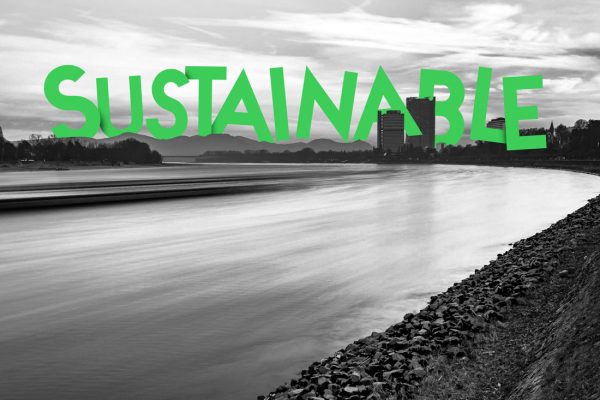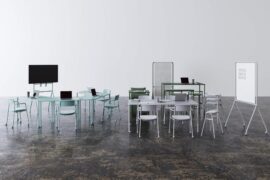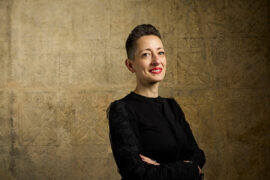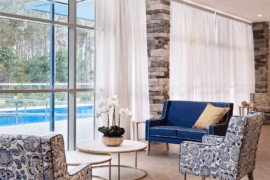Addressing climate change and protecting finite resources are two of the most pressing issues the planet currently faces. And Companies that are focused on short-term profits at the expense of long-term sustainability will not survive. Emmanuel Lagarrigue shares how Schneider Electric does it right.

June 18th, 2018
World Environment Day: An annual time to bring awareness to and spur action for the protection of our ecosystem. ‘Beat Plastic Pollution’ is the theme for 2018 and all companies should be looking at how they can reduce plastic pollution. For the business community and world at large, conservation and sustainability are more than a one-day concern.
Despite scientific evidence that shows we are destabilising our climate and polluting the environment, many corporations continue to pursue unsustainable economic models. These behaviours pose an ecological threat, as well as untold risk to human and economic health. For example, extreme weather events are becoming more common. See the recent hurricane in Puerto Rico, which inflicted an estimated $10 billion in productivity losses, and found residents without homes, power and critical services. The area has still not recovered.
Companies that are focused on short-term profits at the expense of long-term sustainability will not survive. Research has found that companies that operate in true forward-looking fashion have consistently outperformed their industry peers since 2001 across almost every financial measure that matters.
Earlier this year, Larry Fink, CEO of BlackRock, issued a manifesto to CEOs calling on companies to act responsibly. In his letter, Fink says,
Fink is not alone in his sentiments. In 2015, the G20 Financial Stability Board recognised a growing need for financial markets to have clarity on climate change risks. The result is the Task Force on Climate-Related Financial Disclosures (TCFD). TCFD’s purpose is to develop consistent, reliable recommendations for climate change-related financial risks. While other forms of reporting have sought to disclose this information in the past, none have been as sweeping as the TCFD, which are now correlated with CDP’s climate change and supply chain disclosure questionnaires.
In addition, the return on investment for companies engaging in sustainable practices has never been better. Rapidly falling prices of distributed energy resources like renewables and energy storage, combined with enterprise energy efficiency, are enabling companies to respond to these new investor demands while saving money.

To overcome these obstacles, companies and the people who direct and manage them should focus on what’s within their direct sphere of influence.
Here are some examples of actions corporations can take:
Companies just starting out on their sustainability journey should partner with NGOs, which have the necessary skills, connections and assets, and understand community needs and policy implications. For example, Coca-Cola works with WWF to help conserve freshwater resources, non-profit Ceres works with Apple, Citigroup and Nike to develop sustainable business practices, and Schneider Electric partners with Sustainable Energy for All to further our Access to Energy . Look for NGOs that share similar interests and take the opportunity to learn from each other.
A circular economy “entails gradually decoupling economic activity from the consumption of finite resources” and is based on three principles: design out waste and pollution, keep products and materials in use, and regenerate natural systems. Schneider Electric is part of the Ellen MacArthur Foundation’s CE100 and has a goal to achieve 75 per cent of sales under our Green Premium program.
More and more companies are setting ambitious sustainability goals, including transitioning to renewable energy. More than 130 companies, including Schneider Electric, have joined RE100 which means making a global, public commitment to 100 per cent renewable electricity. The United Nations recommends focusing on where you can make the most impact, making goals ambitious, connecting goals to revenue generation or risk management, and ensuring support across the organisation.
As a global corporate citizen, awareness and action for Schneider Electric means asking ourselves if we are doing the right thing for society and challenging ourselves and others to improve — every day.
Learn more about the many strides we are making across the company in the Schneider Sustainability Report 2017 – 2018 or read the report Living by Principles: Business resiliency through increased circularity .
INDESIGN is on instagram
Follow @indesignlive
A searchable and comprehensive guide for specifying leading products and their suppliers
Keep up to date with the latest and greatest from our industry BFF's!

The undeniable thread connecting Herman Miller and Knoll’s design legacies across the decades now finds its profound physical embodiment at MillerKnoll’s new Design Yard Archives.
The new range features slabs with warm, earthy palettes that lend a sense of organic luxury to every space.

Welcomed to the Australian design scene in 2024, Kokuyo is set to redefine collaboration, bringing its unique blend of colour and function to individuals and corporations, designed to be used Any Way!

London-based design duo Raw Edges have joined forces with Established & Sons and Tongue & Groove to introduce Wall to Wall – a hand-stained, “living collection” that transforms parquet flooring into a canvas of colour, pattern, and possibility.

Now in their 19th year, the Architecture & Design Sustainability Awards are Australia’s leading program dedicated to recognising innovation and excellence in sustainable architecture and design.
The internet never sleeps! Here's the stuff you might have missed

As French-Lebanese Architect Lina Ghotmeh prepares for lectures in Melbourne and Sydney, we hear about the philosophy shaping her internationally celebrated practice.

CO-architecture’s program is offering architecture and design professionals a new way to launch and grow practices with business support.

The INDE.Awards 2025 has named House on a Hill by Leeton Pointon Architects and Allison Pye Interiors as the winner of The Interior Space category, presented by Tongue & Groove. This multigenerational country home on Bunurong Country redefines residential architecture and design with its poetic balance of form, function, and sanctuary.

Inspired by an unthinkable design challenge on Sydney Harbour, Materialised’s ingenuity didn’t just fuse acoustic performance with transparent finesse – it forever reimagined commercial curtain textiles by making the impossible possible.